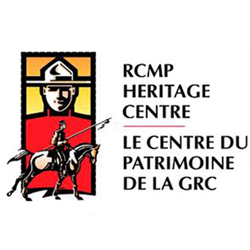Barry Bradley’s Old Newspaper Clippings
Throughout his career in the Force (1960 – 1995), Veteran Barry Bradley developed a newspaper scrapebook containing notable news stories about the RCMP in the Lower Mainland of British Columbia.
Each week, we will post three or four of these old newspaper clippings for the interest of Veterans and their families. This week’s webpage includes some interesting stories reflecting different aspects of activities in the RCMP. These stories would have been forgotten if not saved by Barry and to be shared with others.
RCMP Victimized Their Own Men
December 8, 1976 (Vancouver Sun Newspaper) – Ottawa – Don McLeery and Gilles Brunet are two of the RCMP’s top spies for years – then they were kicked out in the cold.
The became in the eyes of the RCMP disobedient, disloyal, untrustworthy and probably a total of the underworld.
On the surface, the evidence against them is massive, running to hundreds of pages.
But reading deeper, it seems the two were first-rate policemen who were victims of what Conservative MP Elmer MacKay calls a “hatchet job.“
It is the force itself, a force so sensitive to public criticism that it must backtrack at the first whisper of anything that is not fawning praise, cover up whatever minor blemish to present always the perfect front.
“I would have fired them too if I had been the commissioner of the RCMP and saw only the last document,” said their lawyer, Arthur Campeau.
“So, would I,” admitted both McLeery and Brunet.
But a Sun investigation of their case reveals the RCMP were wrong.
The force’s information is erroneous and fails to produce evidence that the two were anything but honest, capable and loyal.
In fact, had they not been so honest they likely would not have been fired.
McCleery and Brunet were highly praised veterans in the RCMP’s anti-spying branch, officially called the security service.
McCleery was a staff sergeant in counterespionage. He had 21 years service and commanded about 45 men.
Brunet, a sergeant in anti-terrorism, had 16 years service and about 29 men under his command.
Both had acces to secrets of national importance and possessed unblemished records.
Both had received superior assessment ratings from their officers.
Their single problems was their friendship with a millionaire who the RCMP hierarchy distrusted.
That man was Mitchell Bronfman, a member of the well-to-do Bronfman family. He is a second cousin to Charles and Edgar Bronfman.
Bronfman, a businessman in his own right, owned a downtown Montreal restaurant.
The restaurant purchased its meat from the firm of a man with questionable connections. It was this tenuous link with McCleery and Brunet that led to their dismissal – a text-book case of guilt by association.
The meat man was Willie Obront, who is now in jail because he refused to testify before the Cliche commission on organized crime in Quebec. Obront is reputed to be an underworld figure.
Bronfman borrowed money from Obront because he needed quick business capital. He paid it back and later broke off his acquaintanceship with Obront when he realized the implications of being associated with a man believed to be a hoodlum.
“I refused to talk to him,” said Bronfman. “He’s a bloody headache.”
But by then the RCMP had deployed impressive resources to investigate Bronfman.
The probe turned up nothing.
According to Bronfman, his father died at 37, and therefore never had the opportunity to build up a large inheritance.
Michell Bronfman went into business for himself in 1965 and established Execaire, a company which serviced private executive jets. Execaire was a pioneer in its field and needed development capital that the banks would not provide, he said.
As a result, Bronfman added, Obront loaned him money.
In 11 1/2 years, Bronfman built Execaire into a company grossing more than $10 million a year. Some of Canada’s largest corporations are clients.
RCMP Commissioner Maurice Nadon refused to be interviewed about McCleery and Brunet or any other matter.

Photograph of RCMP Commissioner Maurice Nadon. (Source of photo – RCMP Historical Collections Unit – “Depot” Division).
In a letter to the Sun a spokesman for Nadon said the commissioner had nothing to say about the pair except that they were once members of the force.
The RCMP relied on three justifications for dismissing McCleery and Brunet and none of them stand up to cross-examination.
First, the RCMP believed Bronfman was a crook and a tool of Obront.
The RCMP investigation found that unsupportable and that Bronfman was eager to cooperate with the Force.
In fact, The Sun has learned, the order was never given to them because of a breakdown in the RCMP chain of command.
Thirdly, the RCMP alleged that Bronfman deliberately ruined an RCMP surveillance of Obront by blocking the police vehicles.
The RCMP account of that incident is full of errors.
McCleery and Brunet’s friendship with Bronfman began to worry the RCMP in 1972 when it was learned that Bronfman might testify before the Cliche commission on crime.
The force, afraid revelation of the friendship would tarnish its image, wanted the association terminated (Bronfman did testify and came away clean.)
Yves Dube, then the assistant RCMP commissioner in charge of Quebec, passed instructions to the officer in charge of the security service that the two must net the association.
The officer was Chief Supt. Larry Forest, a good friend of McCleery.
Forest was convinced Bronfman was lean, and couldn’t bear to give an order to his friend over a threat that didn’t exist.
Forest has since died but an RCMP officer who was at the meeting has confirmed the order was never given.
OFFICER REPRIMANDED
Recalls McCleery:
“Larry (Forest) would say ‘Don, Don you’ve got to stop seeing him.‘”
“I said: ‘Well, give me an order.’
“Don, don’t be like that. I can’t do that I met with the CO today and he’s concerned. Why don’t you just lay off for a week — a couple of months. Just let it go by the boards.'”
In the RCMP, where precision and firmness are prerequisites, orders are always put on paper.
RCMP records show Forest never put the ‘order’ in writing.
Forest was later reprimanded for giving a verbal order when he should have done so in writing.
That was in June, 1972, and the matter died because the RCMP thought the order hd been passed on. The issue flared up again in July, 1973, when it was learned that McCleery and Brunet were still associating with Bronfman.
This time Forest was in trouble too.
Said McCleery” “Larry came to me almost in tears saying, ‘Look, Don, i’ve got a year to go (to retirement). They’re after me. They want to get me to say I haven’t exercised my authority.'”
McCleery volunteered to coverup for Forest and say he received an order, thinking that, as a 20-year veteran, he would receive only minor discipline.
“I thought the worst I’d get was maybe a slap on the wrist for indiscretion, possibly a transfer at the worst.” McCleery recalls.
Instead, McCleery’s statement was used as evidence leading to his dismissal.
Brunet, who was not close to Forest, always denied receiving an order form his boss.
Dube, the assistant commissioner, was under the impression the order was given and recommended that McCleery and Brunet be transferred.
When interviewed at his Montreal home, Dube, now retired and still believing the order was given, said McCleery and Brunet got a “rotten deal” and should not have been fired.
The transfer had already been approved by Ottawa when a dramatic report surfaced from the RCMP’s national crime intelligence unit in Montreal. The report changed the course of events.
The NCIU document stated that an RCMP surveillance of Obront was ruined by a green Torino registered to Securex Safeguards Consultants Ltd., a security agency partly owned by Bronfman.
The report alleged the Securex vehicle veered in front of two RCMP vehicles, thereby permitting Obront to speed away.
The RCMP became convinced “that the seeds of corruption are being sown int he force through these two members.”
They are to be fired.
The report alleged that Obront, suspecting he was being followed, phoned Securex which responded by interfering with the surveillance.
What appears to have happened is that the RCMP were following Obornt’s car southbound on Montreal’s Decarie Expressway when Bronfman, driving a Securex vehicle to a meeting, encountered two unmarked police cars.
Not realizing they were watching Obront, Bronfman thought he was being followed.
It had happened before.
“I saw these police cars, open before me and one behind me, talking into micro-phones,” said Bronfman.
“I said: ‘Here we go again. What the hell, why not give them a run for their money.'”
He began a cat and mouse game with the two police vehicles, passing them, slowing down and passing them again.
While on an exit ramp, the RCMP report alleged, the Securex car cut off the police cars and Obront got away.
– The RCMP version is suspect on several points:
– The roadway is too wide for one car to be able to cut off two other cars even if that is the intent.
– The RCMP report had part of the surveillance taking place on a section of road that doesn’t exist.
– The report says the two RCMP cars drove up to 85 m.p.h. to follow Obront while a follow-up report claims the incident too 10 minutes and lasted fie miles. That puts the speed at about 30 m.p.h.
– The alleged interference occurred on Oct. 10, 1973, but was not reported until Oct. 30, 1973, a delay of nearly three weeks. RCMP reports normally are submitted within days and hot reports like this one usually are prepared immediately.
ERRORS DIDN’T END
Had the interference been possible, the question remains why a security agency would interfere with the police.
“If you are in security,” Bronfman said, “the last thing you do is cut off an RCMP investigation because you will be out of business after that. You’ lose your licence.“
There is no indication the RCMP filed a complaint with licence authorities.
The RCMP report itself acknowledged that Branfman pulled off the road after the alleged interference. The police didn’t bother to stop and questions him.
“If they really believed they had been cut off, the NCIU report would have been written the next day,” said McCleery, who has filed hundreds of RCMP reports.
The errors did not end with the surveillance report.
After it was submitted. Insp. D.K. Wilson, the legal officer who initiated the dismissal proceedings, misinterpreted the report so badly he didn’t know who was being followed.
He thought it was Bronfman, when the target was Obront.
Wilson, now a superintendent, refused to be interviewed.
“It may be that somebody reading the file may come across an error that has been committed,” he said over the telephone.
“At this point one has got to say” ‘So what?‘”
Ten days after the NCIU report was produced, Wilson officially recommended McCleery and Brunet, for dismissal as “unsuitable.”
The two officers were denied a hearing and had no opportunity to expose the errors and false allegations. They didn’t know about the surveillance incident, much less that it was the reason for their firing.
A royal commission headed by Judge Rene Marin has since issued a report condemning the procedure under which they were discharged but the policy has not been stopped.
McCleery and Brunet retained a lawyer, who was told by then-commissioner W.L. Higgitt that the matter was none of his business. On December 6, 1973, the two RCMP veterans were fired.
They filed an action in the Federal Court of Canada (appeal division) asking for justice. They did not seek reinstatement – only for a hearing so they could present their side of the story and hear the evidence against them.
The CMP countered with an application to quash their action on grounds that nobody – not event the court – could challenge a decision from the commissioner of the RCMP. The court unanimously rejected the claim and it appeared McCleery and Brunet would finally get their day in court.
But it was not to be.
The RCMP started filing highly-secret documents to the court in anticipation of a fight. The information was so sensitive that both the RCMP and McCleery and Brunet requested that it be kept secret. But the court refused to go along, maintaining that all evidence submitted must be open.
As a result, the evidence would have to be withdrawn to avoid making national security secrets public.
In effect, one of the two sides had to sacrifice its case in the interest of national security.
A war of nerves broke out.
Neither side wanted to damage the country’s intelligence network but neigthter was prepared to surrender.
For the RCMP it would mean giving the two a hearing. For McCleery and Brunet, it would mean forfeiting their sole avenue of legal recourse and losing the chance to clear their names.
It was like a game of chicken in which each side hoped the other would back down.
It ws McCleery and Brunet who finally succumbed and sacrificed their personal interests for the sake of national security.
They withdrew their case.
Rumors that they were afraid of exposing a seamy side of their case swept throughout the RCMP but it was later shown they withdrew for commendable reasons.
Judge Marin’s royal commission inquiry, which later investigated RCMP grievance procedure, among other things, concluded they did it for the larger good.
“We looked into that and they were not prepared as individuals to expose others to innuendo by making public documents that were necessary for their own selfish cause of action,” say David Scott, counsel for the commission.
“And if you look at the public record, that is what motivated them to stop.”
In an interview with The Sun he said: “In order to get all the cards on the table, a lot of documents which McCleery and Brunet themselves concede are documents which might affect the public interest or national interest might get into the public record. They withdraw the proceeding. That is the training of these guys.”
Scott calls it a reflection of their “sense of responsibility.”
Today however, McCleery and Brunet wish they had not been so responsible and revet withdrawing the action.
To their former colleagues in the RCMP, dropping the suit amounted to pleading guilty. It served only to muddy their reputation further.
Says McCleery: “Every member I meet in the force say: “Why did you drop the case?’ They think we have something to hide.“
They have no legal rights left and can only hope that Solicitor-General Francis Fox will take an independent look at the case and grant them a hearing.
After they were out of the RCMP they joined Securex and became partners with Bronfman and two former RCMP non-commissioned officers.
Despite their common experience and identical age, there is little personal resemblance between McCleery and Brunet.
McCleery is an outgoing person who makes no attempt to hide his feelings. His colourful language displays the fact he never went to university. He is a man of action and the RCMP records show, a superb elder in operations.
He was the RCMP star of the 1970 FLQ crisis in Quebec.
During his off-hours he prowled the streets of Montreal on his own, working out a private theory on the kidnapping of Quebec cabinet minister Pierre Laporte Quebec and British diplomat James Cross.
His work lead to the discovery of Cross’ location in Montreal.
CHECKED FILES
Brunet was almost born into the RCMP. His father was deputy-commissioner and a child Brunet was given car rides by RCMP officers.
his big stature and muscular build give him away as a police officer but the appearance is deceiving. He is a deep thinker, and, unlike McCleery, is cool and philosophical.
After his first encounter with Bronfmam, McCleer, by habit, checked RCMP files and found nothing about his new acquaintance.
Later, when the force became wary of Bronfman, McCleery and Brunet offered to investigate him. The RCMP refused.
“Who was in a better position than us to get information,” McCleery said.
“He would have b sen dead because we could have gotten any information we wanted – we could have put plants, we could have done anything on this guy.”
Brunet even offered to enlist his wife as an informant.
Mrs. Brunet was a waitress in Bronfman’s restaurant and was responsible for intruding them in the first place.
Bronfman himself volunteered to open his books to the RCMP but the force didn’t take him up on it.
In the meantime, Bronfman proved to be a benefit to the RCMP and he seemed to enjoy his role as friend of the police.
“A small balding man, he was a police groupie.”
He enjoys being with policemen and helping out the law.
As a businessman, he set up a private security agency and began accepting ex-RCMP officers as partners.
He performed various errants for the RCMP’s security service before he was blacklisted. One RCMP member said BVrnfman was passing him information so frequently he could be a nuisance.
Even after McCleery and Brunet were dismissed, and he was regarded by some in the force as a criminal and an enemy, Bronfman was cooperating with the RCMP on a top-secret project.
A car the RCMP wanted hidden was being stored in his garage up to a year after the officers’ dismissal.
Irontically, it was Bronfman’s unusual desire to help the RCMP that landed him in trouble. Obront once told Bronfman he had discovered the location of a secret RCMP apartment used for hiding informants. Bronfman passed the news to the RCMP, which located another apartment.
But the RCMP apparently misinterpreted the incident and got it backwards – that Bronfman had told Obront.
The RCMP then investigated the millionaire and learned he was a friend of McCleery and Brunet.
FIRM INVESTIGATED
It was the beginning of the end for the careers of the veteran officers.
After McLeery and Brunet joined Securex, the company began to notice events that point toward a campaign of harassment by the RCMP.
Securex was investigated by the RCMP. The Securex partners were officially blacklisted by the RCMP and members of the force were instructed to avoid the company’s principals (the waring is widely ignored).
The immigration department, without reason and without proper notice, cancelled its contract with Securex.
The company was audited by the revenue department, which seemed to know information contained in the RCMP files.
Securex lost a profitable contract to screen airline passengers at Dorval Airport near Montreal.
An RCMP-initiated newspaper story that later turned out to be wrong had the effect of linking Securex to drug smuggling at Dorval: by the time Securex was cleared a major client had been lost.
Brunet received a notice in the mail that his telephone was tapped.
Stripped of its big government contracts, Securex still does security work for private clients but finds its reputation damaged.
While The Sun was interviewing McCleery and Brunet received a telephone call.
A few minutes later he returned, shaken. The phone call came from a client who described how he was counselled by a police official to avoid Securex. Brunet played a tape recording of the call to demonstrate it was real.
“We are on very good terms with this customer,” said Brunet.”That is why he told us about it. However, we have other customers who we don’t know so well and they may cut us off.“
Even a secretary in the RCMP was pressured – but not ordered – to stop dating McCleery after he was out of the force.
“They knew we were going together – they asked me what I intended to do about it,” the woman said.
What she did was quit her job.
The atmosphere was too bad to endure, she said.
How does a police force discipline as the RCMP allow the McCleery and Brunet css to develop?
The evidence suggests it started as a small error and grew out of control. A the dimensions of the mistake got bigger, so did RCMP actions to cover it up.
The RCMP’s own records document parts of the campaign against McCleery, Brunet and Bronfman. The campaign was initiated by J.P. Drapeau, now deputy-commissioner, and carried out by Insp. J.A.N. Belanger, in charge of the National Crime Intelligence Unit.
Drapeau, who is likely to become RCMP commissioner, made an internal statement on Sept. 4, 1973, describing how he instructed Belanger “to develop information against Bronfman” and deploy the wiretapping and surveillance squads in doing so.
For three years the RCMP investigated Bronfman, McCleery and Brunet without producing any incriminating evidence.
“We’ve got to be the cleanest bunch in Canada,” said Sandy McCallum, one of the ex-RCMP partners in Securex, “because they’ve been after us for three years and all weave acquired is a better reputation. The RCMP knows the investigation is a total injustice but they can’t afford to admit it.”
According to one source, Belanger had rot produce evidence to back up verbal rumours he had fed to Drapeau.
“He didn’t have any,” the source said, “so they had to come up with something. All they have is a bunch of little facts taken out of context.“
MP MacKay (PC – Central Nova), who investigated the case said he was skeptical when he started his inquiries but after hours of research became convinced McCleery and Brunet were innocent victims.
“Once they couldn’t prove there was anything wrong with Bronfman they had to do a hatchet job on these fellows to keep the egg from getting all over them,” said MacKay. “And ever since then they’ve been desperately trying to justify what they shouldn’t have done.”
CONCLUDING COMMENTS: Based on his extraordinary efforts during the FLQ Crisis which lead to the furring of British Trade Minister James Cross, Don McCleery (Reg. #18110).
Gil Brunet (Reg. #18999) had previously served in the Canadian Army from 1952 to 1955 prior to joining the Force. He was the son of Deputy Commissioner Josaphat Brunet (Reg. #9952 – O.290). Gil passed away on April 9,1984 at Montreal. After his death, he was accused of being a KGB agent in the RCMP. Check out this allegation here.


 November 4, 2014
November 4, 2014 











